Professional Courses
Industry-relevant training in Business, Technology, and Design
Categories
Interactive Games
Fun games to boost memory, math, typing, and English skills
Typing
Memory
Math
English Adventures
Knowledge
JEE Main vs. JEE Advanced: Key Differences in Syllabus and Strategy
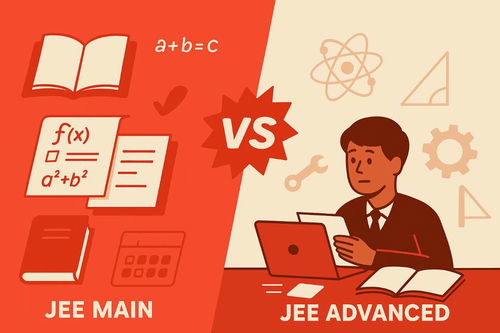
JEE Main vs. JEE Advanced: Key Differences in Syllabus and Strategy
Choosing between JEE Main and JEE Advanced can feel overwhelming for many students. Both exams lead to top engineering colleges in India. Yet they differ in their purpose, structure, syllabus, and preparation strategy. If you understand these differences, you can prepare smartly and effectively. This guide will walk you through both exams step by step. You’ll learn how to adjust your study plan, select the right resources, and avoid pitfalls. Plus, we’ll show how AllRounder.ai can help you at each stage of your JEE preparation.
What Each Exam Is For
JEE Main is administered by the National Testing Agency (NTA). It serves two main purposes. The first is to grant admission into NITs, IIITs, GFTIs, and many state institutions across India. The second is to help select students for JEE Advanced in the next stage where only the top 2.5 lakh rankers qualify.
JEE Advanced is conducted by one of the IITs each year. It opens doors to the elite IITs. Only students who qualify JEE Main can move forward to JEE Advanced. Your performance here determines entrance into IITs.
Think of JEE Main as the stepping stone. JEE Advanced is the path to IITs. Both matter, but each calls for a different kind of preparation.
Eligibility and Attempt Limits
JEE Main is the first step of your journey and after its done, you can go for JEE Advanced.
JEE Main Requirements - You must have passed Class 12 within the last three years. - There is no age limit. - You can attempt Main up to six times over three years. - Each year, it is held twice a year usually in January and April‑May. - If you miss a good score in one attempt, you can try again.
JEE Advanced Requirements - Only the top 2.5 lakh JEE Main rankers can attempt Advanced. - You must meet eligibility criteria like board exam marks. - You get just two consecutive attempts for Advanced. - There is an age limit, often set as being born on or after a specific year. - Planning both exams early helps prevent last‑minute stress.
Patterns and Formats: How They Compare
Both have some similarities and yet they differ in the following ways.
How JEE Main Works - Contains a single paper of 3 hours. - Includes three subjects: Physics, Chemistry, Mathematics. - Each subject has 25 multiple-choice questions (MCQs) and 5 numerical answer-type questions. - Scoring is +4 for each correct MCQ, −1 for each wrong MCQ. Numerical questions have no negative marking. - It tests accuracy, speed, and clarity of basic concepts.
How JEE Advanced Works - Consists of two separate papers. Each is 3 hours long. - Includes different question types: MCQs, multiple correct options, integer answers, matching, matrix reasoning, comprehensions, and more. - There is no fixed format across years. Questions and sections may change yearly. - It promotes logical thinking, multi-step problem solving, and strong concept clarity. - There may be partial credit in some answers but negative marking on others. You must read the instructions carefully.
Syllabus Breakdown: Where They Overlap and Diverge
Both exams cover core topics of Class 11 and 12 across Physics, Chemistry, and Maths. However, JEE Advanced includes deeper and additional areas.
Mathematics
Common Topics:
Algebra, Calculus, Coordinate Geometry, Trigonometry
Main-Only Topics:
Sets, Relations, Functions, Statistics and Probability, Mathematical Reasoning
Advanced-Only Topics:
Complex Numbers, Differential Equations, Advanced Vectors and 3D Geometry
Mathematics in Advanced is conceptually more demanding, with higher difficulty problems. Focus on understanding rather than memorizing formulas.
Physics
Common Topics:
Mechanics, Electricity and Magnetism, Optics, Thermodynamics
Main-Only Topics:
Semiconductor Basics, Electromagnetic Waves, Communication Systems, Practical/Experimental Skills
Advanced-Only Topics:
Rigid Body Dynamics, Advanced Thermodynamics, Wave Optics at deeper level, Modern Physics with added difficulty and theory
Physics in Advanced often asks you to link multiple ideas, for example, combining mechanics with rotation or electromagnetism in a single question.
Chemistry
Common Topics:
Physical Chemistry basics, Inorganic Chemistry basics, Organic Chemistry fundamentals
Main-Only Topics:
Environmental chemistry, Polymer chemistry, Everyday chemistry concepts, Basic stoichiometry and numericals
Advanced-Only Topics:
Detailed reaction mechanisms, Structure and properties of coordination compounds, Analytical electrochemistry, Advanced Organic & Inorganic theory
While JEE Main may expect basic application, Advanced demands deep explanations and understanding of reaction pathways.
Levels of Difficulty: Comparing the Experience
JEE Main caters to the base engineering aspirants, while JEE Advanced is far more difficult.
JEE Main - Moderately difficult. - Focuses on speed and accuracy. - Questions are structured and follow predictable patterns. - Most questions can be solved using NCERT-level understanding. - Emphasizes practice and avoiding silly mistakes.
JEE Advanced - Highly challenging. - Requires deep reasoning and logical deduction. - Questions often merge themes from multiple subjects. - Some problems are lab-style real-world scenarios or puzzles. - Time management and mental stamina matter significantly.
Study Strategy: Adjusting Your Plan
If you seek to succeed in both, you need a proper plan for study and preparation.
Preparing for JEE Main - Use NCERT textbooks thoroughly for all three subjects. - Focus on concept clarity and formula accuracy. - Practice moderately tough MCQs and numerical problems. - Take full-length mocks timed like the real test. - Track mistakes and keep reviewing them. - Use AllRounder.ai to practice and track your performance.
Preparing for JEE Advanced - Build conceptual depth beyond NCERT. - Refer to I.E. Irodov for Physics, advanced R.D. Sharma for Maths, and N. Awasthi for Chemistry. - Solve Olympiad-style questions, reasoning puzzles, and multi-step problem sets. - Take advanced mock tests with timed conditions. - Work through your errors and focus on weak concepts. - Use AllRounder.ai to practice and track your performance.
Resources and Tools You Need
You don't need to buy too much stuff, as there are a lot of free resources available online.
Books: - JEE Main: NCERT, H.C. Verma (Physics), O.P. Tandon (Chemistry), R.D. Sharma (Maths). - JEE Advanced: I.E. Irodov (Physics), Advanced R.D. Sharma (Maths), N. Awasthi (Physical Chemistry).
Online: - Video lessons and conceptual modules for deep clarity. - AllRounder.ai quizzes and flashcards for spaced repetition and detailed analysis.
Mock Tests: - Use structured tests for speed and time control. - Use high-quality AllRounder.ai to simulate actual exam stress.
Preparation Timeline Outline
- Class 11: Build a solid base using NCERT and simple practice.
- First half of Class 12: Cover the rest of the Main syllabus and focus on speed.
- January–April: Intensify Main preparation and take weekly mocks.
- May: Shift gears to Advanced-level study and challenging problems.
- June: Attempt JEE Advanced.
- Post-Advanced: Prepare for JoSAA counselling, college choices, and possible admission tests.
This flow ensures you are continuously learning without losing focus on either milestone.
Exam-Day Strategies
To score high, you need a proper plan and strategy.
For JEE Main - Attempt all easy questions first. - Use elimination in MCQs. - Avoid spending too much time on difficult questions. - Stay aware of your progress with time checks.
For JEE Advanced - Read each question carefully. - Use rough sheets to draft quick solutions. - Target first high-confidence problems. - Solve medium ones next. - Leave hard ones for later. - Review your attempted answers fully if time allows.
Being calm and methodical is very important on the day.
Maximizing Your Toolset with AllRounder.ai
AllRounder.ai stands out by offering: - Topic quizzes: Practice chapter-wise content at both basics and advanced levels. - Full-length mocks: Simulate exam conditions for early prep. - Performance analytics: See strengths and weaknesses by topic. - Spaced revision: Get reminders to revisit old topics. - Flashcards and notes: Capture formulae, key concepts, and date reminders.
Switching between Main and Advanced modules on the same platform keeps learning consistent and structured.
Staying Balanced and Motivated
When preparing for both tests, your mental health must stay strong. - Stick to a steady routine with good sleep and healthy meals. - Take short breaks and engage in relaxing activities like music or sports. - Keep your support circle strong. Talk to parents, friends, teachers. - If anxiety strikes, practice breathing exercises or mindfulness.
A well-rested mind performs far better than an overworked one.
JEE Main vs JEE Advanced: A Complete Feature Comparison
Conducting Authority
- JEE Main is conducted by the National Testing Agency (NTA).
- JEE Advanced is conducted by the Indian Institutes of Technology (IITs) on a rotational basis.
Number of Attempts
- JEE Main: You can attempt the exam 6 times over 3 years (twice a year).
- JEE Advanced: Only 2 consecutive attempts are allowed, making it more exclusive.
Paper Format
- JEE Main has a single paper with multiple-choice questions (MCQs) and numerical-based questions.
- JEE Advanced includes two mandatory papers, featuring a variety of question types such as MCQs, numerical, matrix match, and more.
Syllabus Base
- JEE Main focuses on the CBSE Class 11 and 12 curriculum, primarily based on NCERT.
- JEE Advanced dives deeper into concepts, requiring an advanced understanding beyond the NCERT level.
Difficulty Level
- JEE Main is moderately difficult, testing speed and accuracy.
- JEE Advanced is known for its high difficulty level, challenging reasoning and problem-solving skills.
College Admission Scope
- JEE Main is the gateway to NITs, IIITs, and state-level engineering colleges.
- JEE Advanced is required for admission into IITs, India’s most prestigious engineering institutions.
Preparation Focus
- For JEE Main, students should focus on speed and precision.
- For JEE Advanced, the emphasis is on analytical thinking, depth, and multi-concept integration.
Recommended Study Material
- JEE Main: NCERT textbooks, HC Verma (Physics), R.D. Sharma (Maths), and basic reference books.
- JEE Advanced: Higher-level resources like I.E. Irodov (Physics), MS Chauhan (Organic Chemistry), and advanced R.D. Sharma.
Smart Study Support
- Whether you're preparing for JEE Main or Advanced, platforms like AllRounder.ai offer:
- Chapter-based practice
- Realistic mock tests
- Doubt-solving support
- Subject-wise analysis to track progress
In Summary: How to Prepare for Both
- Start with JEE Main fundamentals.
- As you build basics, begin integrating JEE Advanced topics.
- Use the right books and platforms to practice varied question types.
- Maintain a steady routine with mock tests and revision.
- Adjust your strategy after each practice test.
- Take care of your mental and physical health.
- Use AllRounder.ai consistently to track progress and revise confidently.

Learn how negative marking works in JEE Main 2025 and how to avoid it with practical, proven strategies.

Learn how to prepare for JEE Main 2025 with a proven, winning strategy. Get a detailed plan, subject-wise tips, and...

Learn the chapter-wise weightage for JEE Main 2025 across Physics, Chemistry, and Maths. Prioritise smartly and...

Discover the most important chapters for JEE Main 2025 across Physics, Chemistry, and Maths. Focus your prep smartly...
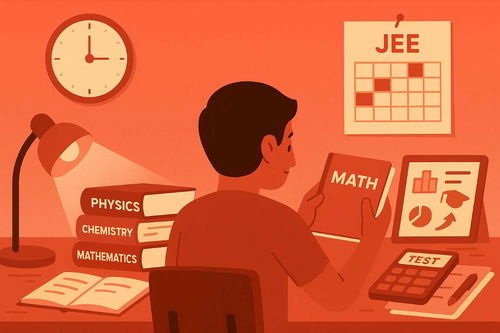
Discover top JEE Main books for Physics, Chemistry & Maths. Learn how NCERT & reference books pair with AllRounder.
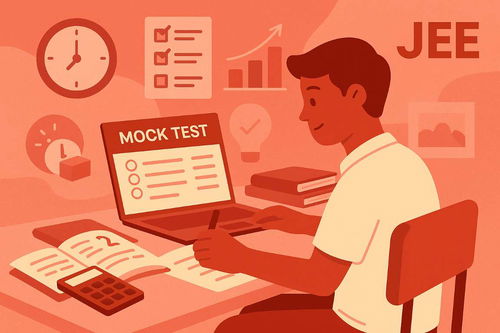
Looking for free JEE Main mock tests to boost your preparation? Discover the best platforms, tips, and strategies to...

Discover what scores and percentiles are needed to secure seats in top NITs, IIITs, and GFTIs. Learn how category...
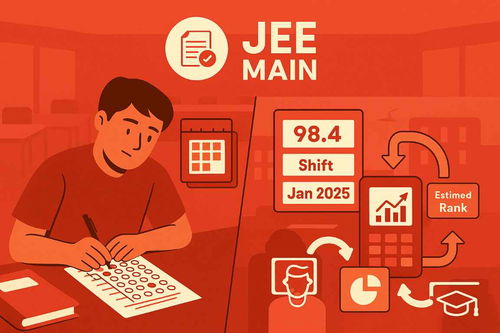
Understand the exact difference between JEE Main percentile and rank. Learn how scores are normalized across...

Understand the JEE Main scoring system to maximize your result. Learn the marking scheme, how to handle negative...

Confused about the JEE Main attempt limit? This guide clarifies how many times you can appear, the eligibility...

Wondering how many times you can appear for JEE Mains? This guide explains the total attempts allowed, session...

Discover the key differences between JEE Main and JEE Advanced in terms of syllabus, pattern, difficulty, and prep...

Confused about JEE Main qualification rules? This blog gives you a detailed checklist of eligibility criteria,...

Explore this simple, step‑by‑step guide to the JEE Main counselling process. Learn how to register, fill choices,...

Curious about how many times SC students can attempt JEE Main? This complete guide covers JEE Mains attempt rules,...

Want to score 200+ in JEE Main? This practical guide gives you proven tips, subject-wise strategies, mock test...

Wondering how the JEE Main exam is structured? This complete guide breaks down the official JEE Main exam pattern...
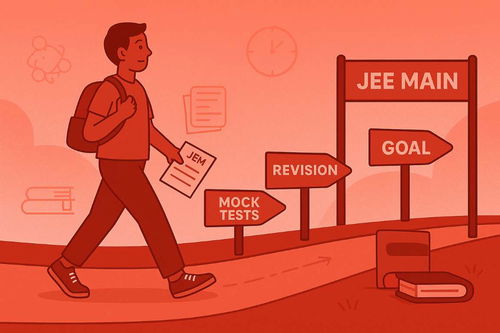
Learn how to crack JEE Main on your first attempt with proven strategies. This guide covers planning, conceptual...
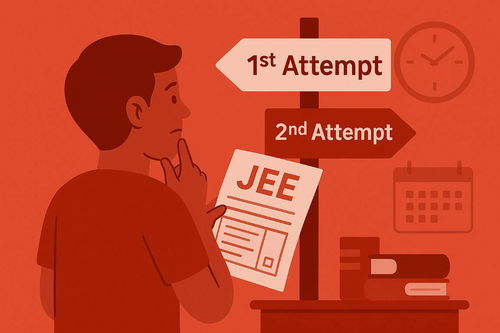
Learn how many JEE Main attempts you can take after Class 12. This guide covers eligibility, attempt limits, subject...
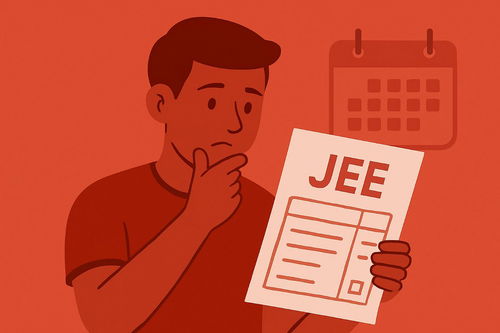
Learn about the JEE Main age limit requirement and key eligibility rules. Understand the attempt policy, Class 12...

Discover the most important topics for the JEE Main exam in Physics, Chemistry, and Mathematics. Learn subject-wise...
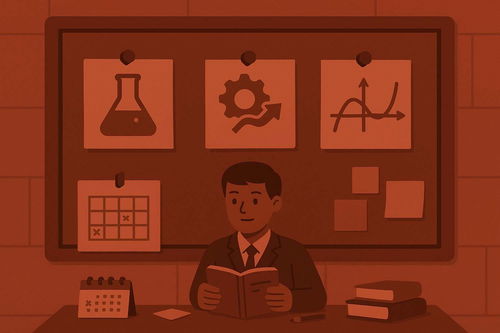
Get a subject-wise preparation strategy for JEE Main step-by-step using smart tips and trusted resources from AllRounder.ai.

Looking to score high in JEE Main 2026? Discover expert preparation tips on creating smart study plans, mastering...

Confused about JEE Mains eligibility? This detailed guide explains JEE Mains eligibility criteria including...
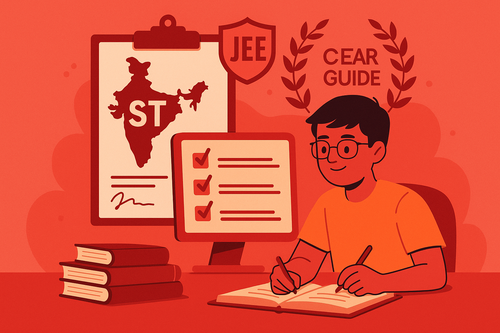
Confused about JEE Main Attempts for ST Category? This detailed guide covers attempt limits, age relaxations,...
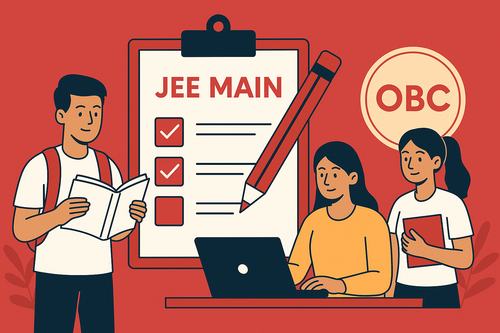
Wondering how many times OBC candidates can appear for JEE Mains? This detailed guide explains JEE Main Attempts for...

Dropping a year for JEE Mains? This in-depth strategy guide helps droppers optimise their JEE Main attempts with...

Confused about how many times you can appear for JEE Main? This guide explains the number of JEE attempts, session...
Resources
-
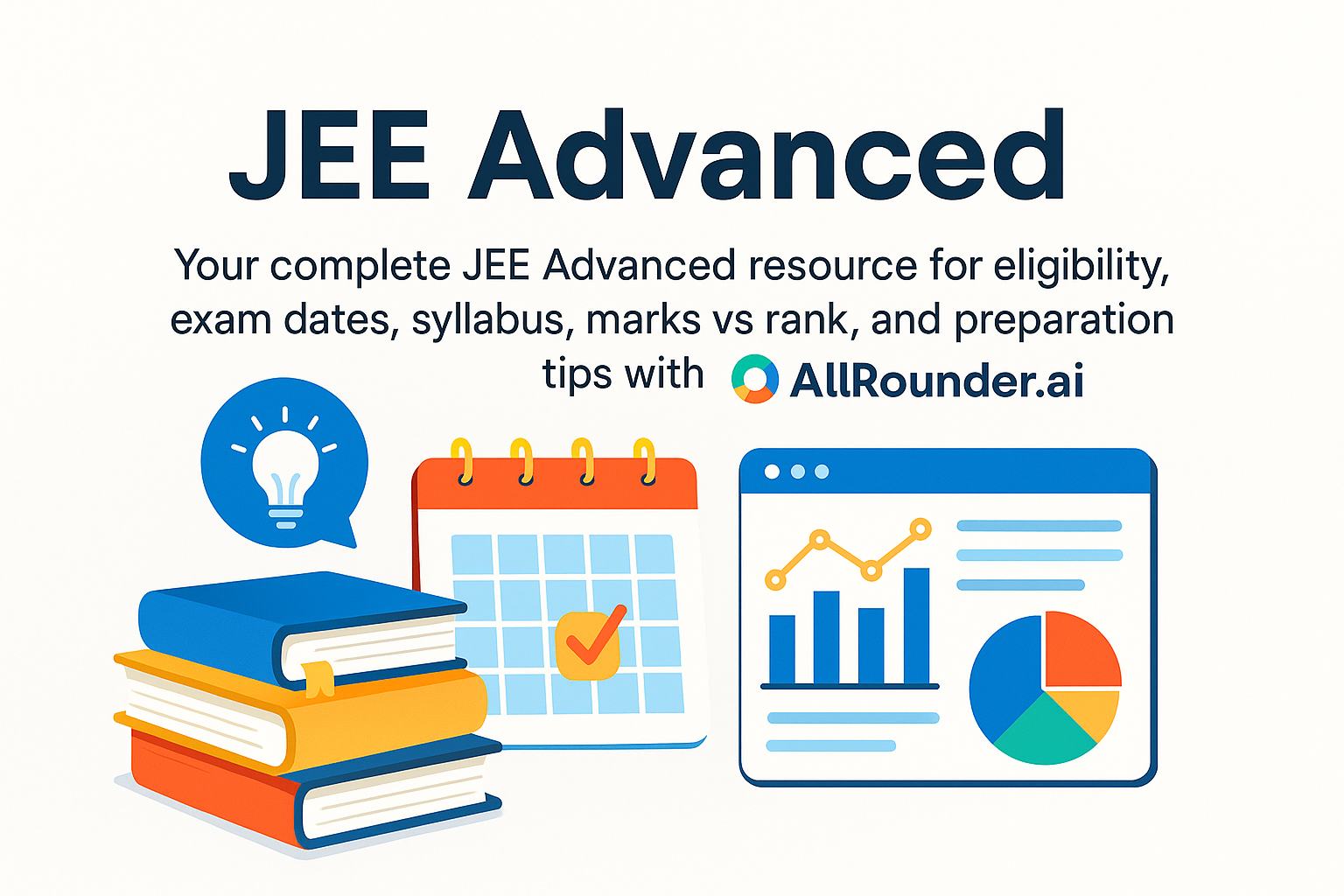
Your complete JEE Advanced resource for eligibility, exam dates, syllabus, marks vs rank, and...
-
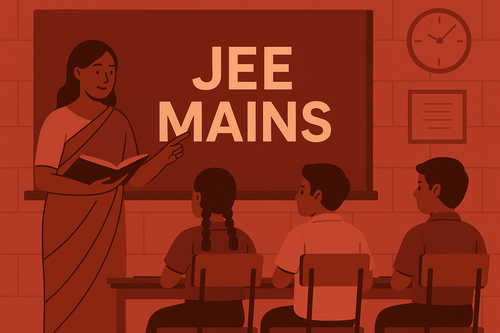
Understand the entire JEE Main process, from application and eligibility rules to the exam...
-

Explore the IB Board – a global curriculum emphasizing holistic, student-centered learning...
-

Learn about CBSE – India’s national school board offering a standardized curriculum, NCERT...
-

Explore everything about the ICSE board – its curriculum, subjects, exam format, and academic...
